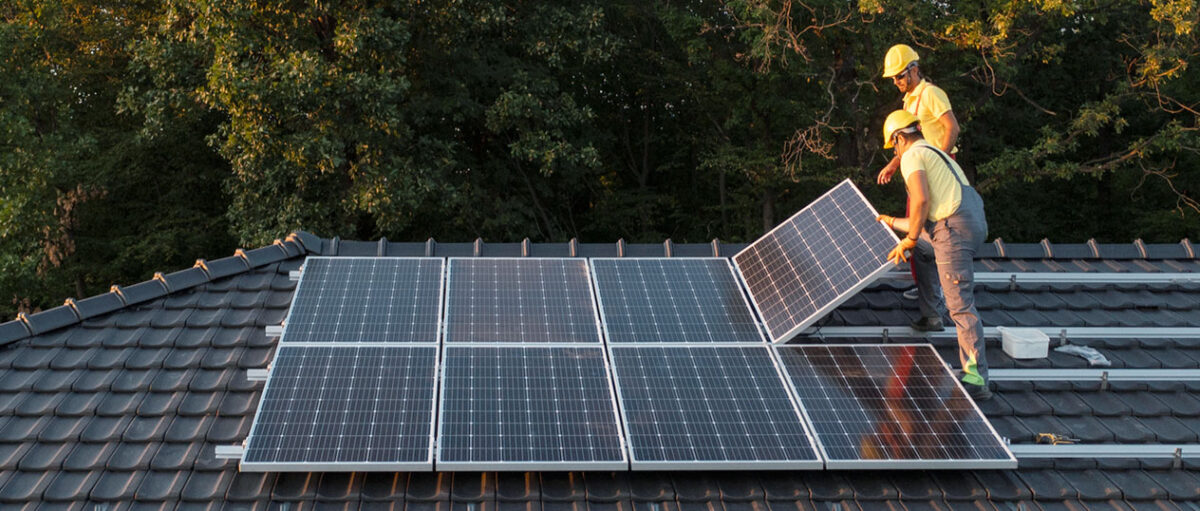When it comes to taxes, knowledge is power. The power to qualify for more deductions, that is. Home improvements for tax deductions might not be the right fit for everyone, but depending on your reno goals, it could be a great fit for you. Not all home improvement projects are eligible for tax write-offs, though. So, we’re here to help you understand the requirements and restrictions before you start knocking down walls.
Home improvements for tax deductions to consider
Home improvements that qualify for tax deductions typically fall into one of these four categories:
- Renovations for medical conditions
- Eco-friendly home upgrades
- Home office additions
- Improvements made to sell your home
However, as with all things taxes, it’s not that simple. Which home improvements are tax deductible depends on the scale of the project, how you use the renovated space, and more detailed criteria. Plus, some states may have different tax requirements than others. With that in mind, let’s get into what you can generally expect to qualify.
Renovations for medical conditions
Accessible home modifications are often eligible for tax deductions. These include medically necessary home improvements intended to make the home livable for a person with a disability who resides in the home.
Common deductible home improvements for accessibility
- Widening doorways
- Installing stair lifts and ramps
- Installing voice-activated control systems
- Installing handrails and grab bars throughout the home
- Converting standing showers and tubs to include accessible seating
Eco-friendly home upgrades
In case helping out the planet (and lowering your utility bill) wasn’t incentive enough to go green, many home improvements for energy efficiency can help you qualify for more tax deductions. Barring very few exceptions, these deductions can only apply to your existing home, not a new home you’re constructing from the ground up.
Common deductible home improvements for energy efficiency
- Installing ENERGY STAR-rated doors and windows
- Installing ENERGY STAR-rated appliances
- Installing solar panels
- Replacing insulation materials
Pro Tip: What does an ENERGY STAR rating actually mean? ENERGY STAR-rated products meet strict energy efficiency standards set by the US Environmental Protection Agency. Learn more here.
Home office additions
If you run a business from home, you may be able to deduct that space from your taxes. In general, your home office needs to be an exclusive part of your home that you use only for conducting business on a regular basis. Your home office should also be your principal place of business. If you spend 9-to-5 at a storefront and use your home office to catch up on overtime tasks, that home office space likely won’t qualify.
Common deductible home improvements for your home office
- Installing new equipment needed for work (such as a new printer)
- Renovations made to your entire home that impact the office (such as new floors throughout)
- Repairs made to the office exclusively
Pro Tip: Most home office tax deductions are based on the percentage of your home’s square footage that the office occupies. So, first things first, bust out that measuring tape.
Improvements made to sell your home
If you sell your home for more than you paid for it, that’s called capital gain. And in tax world, capital gain is, you guessed it, taxable. Luckily, it’s possible to reduce the amount you’re taxed for that capital gain based on how much money you invested in the home. Even if those renovations weren’t necessarily made with a sale in mind at the time, you could still qualify.
Common deductible home improvements for home sales
- Structural additions, like a new garage
- Landscaping installations, like a swimming pool or firepit
- Plumbing or HVAC upgrades
- New flooring
As a general rule of thumb, upgrades required to maintain the livability of your home do not qualify. For example, the cost of repairing a leak in the ceiling won’t be eligible for a deduction.
Other potential home improvements for tax deductions
If you own a rental property, home improvements generally are not deductible. However, you may be able to deduct the cost of necessary repairs to the property. Whether or not a home improvement project on a rental property is considered deductible essentially comes down to whether that repair was necessary to make the home livable (deductible) or whether it was simply enhancing the space (not deductible). Additionally, you should look into specific state or local tax deductions for home improvement projects. Depending on where you live, you may have more options than you think.
Bottom line? Homeownership can offer so much more than just a place to live. Tax deductions for home improvements are just one way to make the most of your investment.
This material has been prepared for informational purposes only and is not intended to provide, and should not be relied on for, tax, legal, or accounting advice. You should consult your own tax, legal, and accounting advisors before making the decision to buy or refinance a home.
Not only can renovations boost your home’s value, but some projects could qualify you for more tax deductions.





